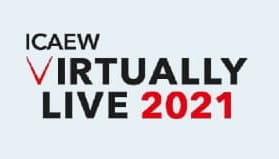As part of the Tax Day announcements, the UK government and HMRC launched a review of the framework underpinning the entire tax administration system. This could be an ideal opportunity to also consider a change to the tax year-end.
In a Financial Times column in February, Anita Monteith, ICAEW’s Technical Lead and Senior Policy Adviser on tax, argued it is time for the UK to consider moving away from the 6 April start date, which predates the adoption of the Gregorian calendar in 1582.
She explained: “Individuals and businesses transact across borders all the time, but it is unnecessarily cumbersome to have to deal with non-aligned tax jurisdictions. Added complexity means more time, more mistakes and generally increased compliance cost. The US, France, Germany, Spain, Ireland and even Jersey (a British dependency) all use calendar years.”
According to Monteith, the 6 April date does not provide the UK with “the right platform for the modern digital tax system”.
Although any system change may involve initial challenges, Dr Brian Keegan, the Director of Advocacy and Voice for Chartered Accountants Ireland, told ICAEW Insights that the move in Ireland to change the start of the tax year from 6 April to 1 January went extraordinarily well, with relatively few problems.

Dr Brian Keegan, Director of Advocacy and Voice for Chartered Accountants Ireland, speaking at a London Society event in February 2020.
The Irish experience
In Ireland, the tax year change in 2002 took place in the context of the migration of the Irish pound to the Euro currency. The plan was announced in July 2000 by then Finance Minister Charlie McCreevy, who said it would put income tax collection on a “more rational and simplified basis” and that combining this with the changeover to the Euro would allow the IT changes to be made in one go.
Keegan says: “There was a clear feeling at the time, not only in official circles but also in the private sector, that because systems would have to change - accounting systems, finance systems, all of that - by virtue of the changeover to the Euro, an opportunity presented itself to also change the tax year. It made sense not just from a domestic administrative point of view, but also from our participation in the Eurogroup and the harmonisation of the Irish system with the system of the other countries in the Eurogroup.”
According to Keegan, there was not a particularly long lead-up to the change. It included a shorter nine-month or 39-week tax year from 6 April to 31 December 2001, before the start of the new full financial year on 1 January 2002.
For this shorter tax year, many annual reliefs and allowances needed to be time apportioned by a factor of .74. These included things like the income tax rate bands, personal allowances, exemption limits and benefit in kind thresholds. The transition also involved legislative changes, such as references to new filing and compliance dates and the Euro currency in the Finance Act 2001. Keegan says: “We got on with it fairly quickly. I think it’s fair to say we didn’t agonise over it.”
Transitional anomalies and challenges
With a shorter tax year in 2001, it was a busy period for everybody in business and practice, but everyone knew it was a one-off and when the system was in place it flowed reasonably well, says Keegan.
“The Exchequer did suffer a cashflow disadvantage and some self-employed people had the benefit of a tax year that was only about three-quarters the length of the normal tax year, so a portion of profits fell out of assessment,” he explains. But that was accepted and planned for, he adds.
According to Keegan, self-assessed income tax payers were the most affected by the change. “The payment dates and the compliance dates changed. It had the knock-on effect that people in practice had to re-arrange the way their practices operated to ensure they had appropriate staffing around October time, which became the new filing season after the changeover took place.”
There were other implications and pockets of difficulty during the short tax year, such as for people who were relying on the 183-day rule for determining tax residence. Keegan also explains that in the farming sector in Ireland, income for farmers for a given year is calculated by referencing the average over three years under an income averaging system. “Where you have a short tax year, how do you work out that average?” he points out. “There were a few anomalies that arose, but surprisingly few.”
Broad considerations
Keegan emphasises that the change was not purely prompted by tax considerations but also factors such as welfare, international relations and the context of the Eurogroup.
“The financial year determines a whole range of things for example social welfare benefits, people’s entitlements and residency rules, so it wasn’t purely a tax administrative move. It had echoes right across society and the social welfare system.”
Internationally, the changeover meant Ireland was keeping in step with some of the other major economies and fiscal patterns of other members in the Euro group. “It’s always easier when you’re not the exception”, Keegan says.
He adds: “I think generally speaking people welcomed the change because a calendar year basis made more sense. Overall, it was a simplification and I think even over the course of the changeover it was seen as such. However, because of the effort required, changing the tax year to coincide with the calendar year would not have been justifiable without the additional policy reason of the move to the Euro.”
Further resources:
Future of Tax
As HMRC launches its review of the system that underpins the tax system, we take a look at the pressing issues and challenges.

- TAFR gets real with consultation on basis period reform
- HMRC needs more resource to rebuild the UK's tax system
- Identification and registration of taxpayers must be a priority, says ICAEW
- In-year tax estimates wouldn’t be an accurate basis for payment, warns ICAEW
- Join up HMRC systems to provide a better taxpayer experience, says ICAEW



